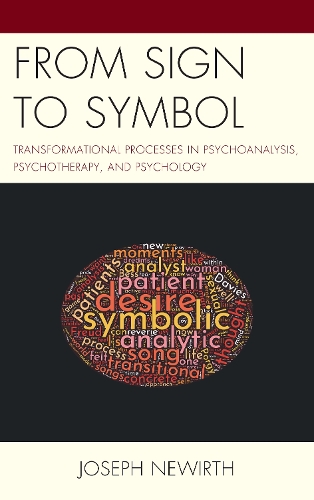
From Sign to Symbol: Transformational Processes in Psychoanalysis, Psychotherapy, and Psychology
(Paperback)
Available Formats
Publishing Details
From Sign to Symbol: Transformational Processes in Psychoanalysis, Psychotherapy, and Psychology
By (Author) Joseph Newirth
Bloomsbury Publishing PLC
Lexington Books
29th October 2019
United States
Classifications
Professional and Scholarly
Non Fiction
Child, developmental and lifespan psychology
Physiological psychology, neuropsychology, biopsychology
616.8917
Physical Properties
Paperback
174
Width 153mm, Height 230mm, Spine 13mm
268g
Description
In From Sign to Symbol: Transformational Processes in Psychoanalysis, Psychotherapy, and Psychology, Joseph Newirth describes the evolution of the unconscious from the psychoanalytic concept that reflected Freuds positivist focus on symptoms and repressed memories to the contemporary structure that uses symbols and metaphors to create meaning within intimate, intersubjective relationships. Newirth integrates psychoanalytic theory with cognitive, developmental, and neuropsychological theories, and he differentiates two broad therapeutic strategies: an asymmetrical strategy that utilizes the logic of consciousness and emphasizes the differentiation of person, place, time, and causality in the world of objects, and a symmetrical strategy that utilizes the logic of the unconscious in the world of emotional, intersubjective experience. He presents multiple approaches to the use of these symmetrical therapeutic strategies, including the use of humor, dreams, metaphors, and implicit procedural learning, in transforming concrete symptoms and signs into the symbolic organizations of meaning. Examples from both psychotherapeutic practice and supervision are presented to illustrate the development of the capacity for symbolic thought or mentalization.
Reviews
From Sign to Symbol: Transformational Processes in Psychoanalysis, Psychotherapy, and Psychology is a spectacular and fascinating work. Joseph Newirth discusses a wide range of psychoanalytic theories and deftly emphasizes how they cohere, rather than how they oppose each other.Humor is evident as a factor throughout the clinical work that Newirth presents. Readers at any stage of their clinical careers will be amused. They will also profit from the rich and sensitive case examples and the focus on psychoanalytic clinical supervision. -- Elliot Jurist, The City College of New York
Author Bio
Joseph Newirth is professor at the Derner Institute of Advanced Psychological Studies at Adelphi University.
